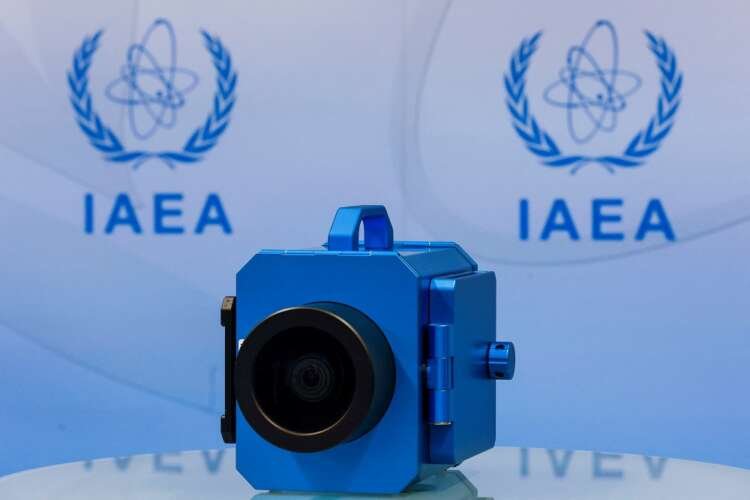Iran’s nuclear programme is “galloping ahead”, IAEA chief says -El Pais


MADRID (Reuters) -Iran’s nuclear programme is “galloping ahead” and the International Atomic Energy Agency has very limited visibility on what is happening, IAEA chief Rafael Grossi told Spain’s El Pais newspaper in an interview published on Friday.
MADRID (Reuters) -Iran’s nuclear programme is “galloping ahead” and the International Atomic Energy Agency has very limited visibility on what is happening, IAEA chief Rafael Grossi told Spain’s El Pais newspaper in an interview published on Friday.
In June, Iran began removing essentially all the agency’s monitoring equipment, installed under its 2015 nuclear deal with world powers. Grossi said at the time this could deal a “fatal blow” to chances of reviving the deal following 2018’s pullout by the United States.
“The bottom line is that for almost five weeks I have had very limited visibility, with a nuclear programme that is galloping ahead and, therefore, if there is an agreement, it is going to be very difficult for me to reconstruct the puzzle of this whole period of forced blindness,” he told El Pais.
“It is not impossible, but it is going to require a very complex task and perhaps some specific agreements,” said Grossi, who was visiting Madrid.
Grossi said in June there was a window of just three to four weeks to restore at least some of the monitoring that was being scrapped before the IAEA lost the ability to piece together Iran’s most important nuclear activities.
LIMITS
Iran has breached many of the deal’s limits on its nuclear activities since then-U.S. President Donald Trump pulled Washington out of the agreement and re-imposed sanctions on Tehran in 2018. It is enriching uranium to close to weapons-grade.
Western powers warn Iran is getting closer to being able to sprint towards making a nuclear bomb. Iran denies wanting to.
Indirect talks between Iran and the United States on reviving the 2015 deal have been stalled since March.
Western powers warn Iran is getting closer to being able to sprint towards making a nuclear bomb. Iran denies wanting to.
Indirect talks between Iran and the United States on reviving the 2015 deal have been stalled since March.
Iran’s Foreign Minister Hossein Amirabdollahian was quoted on Friday as saying his country and the United States were very close to a deal to revive the 2015 accord, but that Tehran needed U.S. guarantees to avoid getting “bitten twice”.
“We have a ready text in front of us and we agree on more than 95 to 96 percent of its content, but there’s still an important flaw in this text: we need to get the full economic benefits of the agreement. We don’t want to be bitten twice,” Iranian media quoted Amirabdollahian as saying.
Grossi said he was concerned and worried about the weeks with no visibility.
“The agency needed to reconstruct a database, without which any agreement will rest on a very fragile basis, because if we don’t know what’s there, how can we determine how much material to export, how many centrifuges to leave unused?,” he said.
Asked about a Reuters report that Iran was escalating its uranium enrichment further with the use of advanced machines at its underground Fordow plant, Grossi said “the technical progress of the Iranian programme is steady”.
(Reporting by Emma Pinedo, additional reporting by Dubai newsroom; Editing by Inti Landauro, Catherine Evans and Gareth Jones)
A nuclear programme refers to a country's efforts to develop nuclear technology, which can be used for energy production or, in some cases, for military purposes.
Uranium enrichment is the process of increasing the percentage of the isotope uranium-235 in uranium, making it suitable for use in nuclear reactors or weapons.
The IAEA is an international organization that promotes the peaceful use of nuclear energy and aims to prevent the proliferation of nuclear weapons.
Economic sanctions are restrictive measures imposed by countries or international organizations to influence or punish a nation for specific behaviors, often related to security or human rights.
Explore more articles in the Top Stories category











